Our History
Methodism first began in the Donovan-Beaver communities in the early 1800's. Around 1828, Reverend Jesse Walker first visited the local community and began holding church services in area homes. In the spring of 1834, Brother Eliker Springer organized a group of eight members, which became the first group of Methodists in the township. Within the first year, the congregation grew to 70 members. Forty years later (in 1874), a circuit of three churches was formed. The circuit consisted of Donovan, Prairie Dell and Iroquois with Brother Calhoun who served as pastor. This arrangement continued with the congregations meeting in homes.
In 1882, a plot of land (within the town of Donovan) was donated by John and Anna Donovan to build the first Methodist Church on that site. This is the same building which is still used today that serves the congregation in Donovan. The Reverend G. W. Abbott was pastor during the construction of the church building.
Although the Donovan Methodist Episcopal Church was a member of the American Conference (English speaking), there were increasing numbers of Swedish people in the congregation. In the early 1880's, when Reverend Eric Shogren was at the Beaver Methodist Episcopal Church, an occasional Swedish service was held in the Donovan Methodist Episcopal Church. As time went on, Swedish services were held more often until finally the Swedish pastor of the Beaver Methodist Episcopal Church became a supply pastor of the Donovan Methodist Episcopal Church.
The church building went through additions and renovations during the pastorate of the Reverend Francis Logren. In 1927, the Donovan Methodist Episcopal Church was rededicated with District Superintendents from the American and Swedish Conferences in attendance. During this time, the Beaver and Donovan Methodist Episcopal churches were assigned one pastor to serve at both churches. In 1939, a great Uniting Conference was held between the Methodist Episcopal Church and the Methodist Episcopal Church, South. This merger then became to be known as "The Methodist Church." More building improvements were made in the late 1950's and early 1960's to the Donovan Methodist Church during the pastorate of Reverend Dewayne Lowther.
In 1964, the Beaver Methodist Church was struck by lightning and burned. That same year, during the pastorate of Reverend Paul Lees, the two churches decided to be united, and in 1965, formed a new congregation. This new church alignment retained the old name Donovan Methodist. There were 221 members at that time. Nationwide at the Methodist General Conference in 1968, the Evangelical United Brethren (E.U.B.) Church merged with the Methodist Church to form a union now called The United Methodist Church. With this change in 1968, the Donovan Methodist Church was renamed the Donovan United Methodist Church.
In 1974, the Donovan UMC became a yoked charge with the Iroquois UMC. In 1989, this two-point charge, under the pastorate of Rev. Dr. Jacob Dharmaraj (who was from Bombay, India), became the church's first cross-cultural pastor. In 1993, the Sheldon UMC was added to this charge. During this time, the three churches shared one pastor. In 2005, the agreement dissolved and the Donovan UMC became a single-point charge until 2009 with two different pastors. Presently, the Donovan UMC is a two-point charge, sharing a pastor with Crescent City UMC. In 2015, under the pastorate of Reverend Kevin Nourie (of Swedish heritage), became Donovan UMC's first pastor appointed to come back and equip his hometown church for ministry.
Currently, the Donovan UMC is committed to making a difference within the community (and surrounding areas)- one life at a time. Within Iroquois County, the Donovan UMC sponsors the Sheldon Area Food Pantry (in Sheldon, Illinois) in partnership with Eastern Illinois Food Bank and Feeding America. This pantry not only provides the necessary food items for people in need, but also gives followers of Jesus Christ an opportunity to serve God's people. Also a community garden was started to help those within the community to get free fresh produce. We want to be a caring Faith Community- helping those who are marginalized and less fortunate within our local community.

